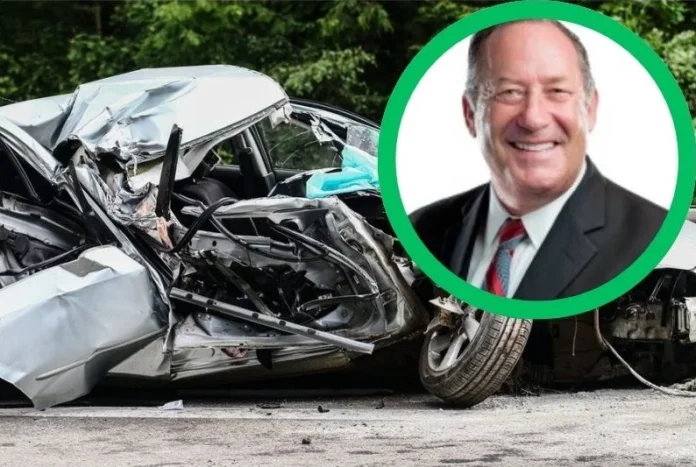The car accident involving Raymond Urbanski in Nova Scotia has left an indelible mark on the local community, highlighting the importance of road safety and the power of community support in times of crisis. This tragic incident serves as a stark reminder of the fragility of life and the far-reaching consequences of a single moment on the road. As we go through the details of Raymond Urbanski Car Accident in Nova Scotia and its aftermath, it is crucial to understand the context and impact of this event on the individuals involved, their families, and the wider community.
Details of Raymond Urbanski Car Accident in Nova Scotia
On the evening of August 15th, 2024, at approximately 9:30 PM, a devastating collision occurred at the intersection of Main Street and Elm Avenue in Nova Scotia. Raymond Urbanski, a beloved member of the community, was driving his silver Honda Civic westbound on Main Street when he collided with a red Dodge Ram pickup truck driven by Jennifer Adams. The force of the impact was so severe that Urbanski’s car veered off the road and crashed into a nearby tree, leaving him with life-threatening injuries. Emergency services were immediately dispatched to the scene, and Urbanski was rushed to the nearest hospital for urgent medical attention.
Investigation and Findings
The Nova Scotia Police Department and the Wilmington Police Department swiftly launched a comprehensive investigation into the circumstances surrounding the accident. Initial findings suggested that a combination of factors, including poor weather conditions, hazardous road conditions, and a malfunctioning traffic signal, may have contributed to the collision. The traffic signal at the intersection had been showing a green light for an extended period, potentially leading to confusion among drivers. As the investigation progressed, authorities also examined the possibility of mechanical issues with Urbanski’s vehicle and the overall road safety protocols in place at the time of the accident.
Community Response
The news of Raymond Urbanski’s accident sent shockwaves through the tight-knit community of Nova Scotia. Known for his kindness, generosity, and active involvement in local events, Urbanski was a pillar of the community, and his absence was deeply felt. In the face of this tragedy, the community rallied together to support the Urbanski family during their time of need. Fundraisers were organized to help cover medical expenses and provide financial assistance, while local businesses and residents offered their condolences and support in various ways. A candlelight vigil was held in honor of Raymond, with hundreds of people gathering to pay their respects and share memories of his positive impact on their lives. Local officials, including the mayor of Wilmington, Timothy Ross, released public statements expressing their deepest sympathies and pledging their support to the family.
Road Safety Initiatives
The Raymond Urbanski car accident catalyzed a renewed focus on road safety in Nova Scotia. In the wake of the tragedy, various programs and initiatives were launched to educate drivers about the dangers of the road and the importance of responsible driving practices. Local schools introduced road safety education programs to teach students about traffic signs, pedestrian safety, and the consequences of reckless driving. Mechanics in the area offered free safety inspections and provided educational resources on basic vehicle maintenance to help prevent accidents caused by mechanical failures. Lawmakers also proposed stricter penalties for traffic violations, particularly for offenses such as failing to yield and distracted driving. A task force was formed to review existing road safety protocols and recommend enhancements to improve the overall safety of the community’s roads.
| Initiative | Description |
|---|---|
| Road Safety Education Programs | Local schools introduced programs to teach students about road safety |
| Free Safety Inspections | Mechanics offered free vehicle inspections and maintenance education |
| Stricter Traffic Violation Penalties | Lawmakers proposed harsher penalties for traffic offenses |
| Road Safety Task Force | Formation of a task force to review and enhance road safety protocols |
Impact on Public Health and Safety
The tragic accident involving Raymond Urbanski underscores the broader implications of such incidents on public health and safety. Severe trauma, whether caused by car accidents or other catastrophic events, represents a significant burden on healthcare systems and communities worldwide. The European guideline on the management of major bleeding and coagulopathy following trauma highlights the importance of immediate detection and management of traumatic injuries to improve patient outcomes. The sixth edition of this guideline provides comprehensive recommendations for clinicians treating bleeding trauma patients, emphasizing the critical role of timely intervention in preventing exsanguination and other life-threatening complications.
| Trauma Management Guideline | Key Points |
|---|---|
| European Guideline | Sixth edition focuses on the management of major bleeding and coagulopathy |
| Immediate Detection | Early identification of traumatic injuries is crucial for improved outcomes |
| Comprehensive Recommendations | The guideline provides structured recommendations for clinicians treating trauma |
| Prevention of Exsanguination | Prioritization of measures to optimize resources for bleeding control |
Conclusion
The Raymond Urbanski car accident in Nova Scotia serves as a poignant reminder of the profound impact that a single moment can have on a community. The outpouring of support and the swift actions taken in the aftermath of the tragedy demonstrate the resilience and unity of the people of Nova Scotia. As we reflect on the life of Raymond Urbanski and the lessons learned from this incident, it is clear that continued efforts in road safety education, community support, and trauma management are essential to prevent future accidents and ensure the well-being of all community members. By working together to prioritize safety, compassion, and understanding, we can honor Raymond’s legacy and create a safer environment for generations to come.

